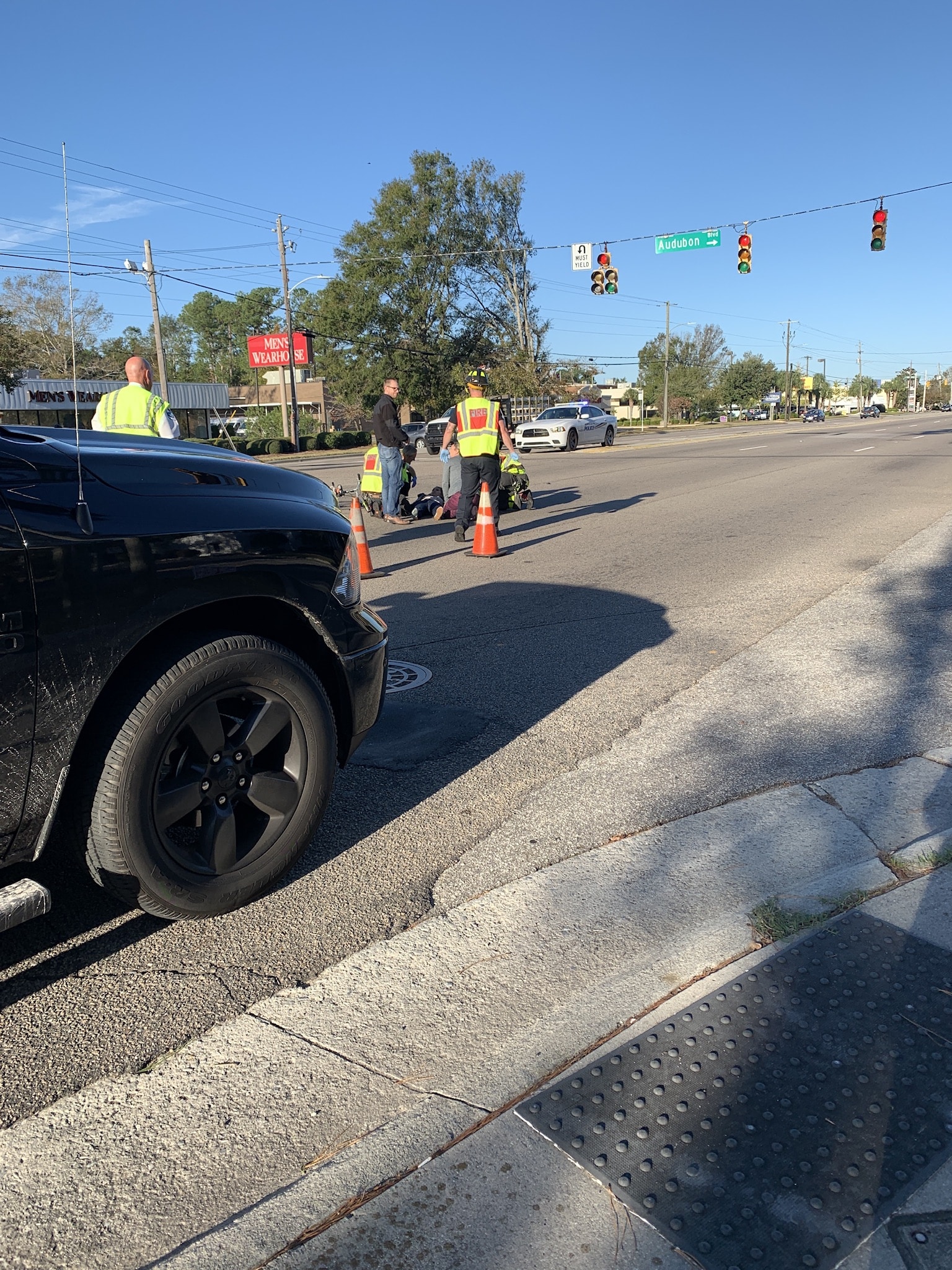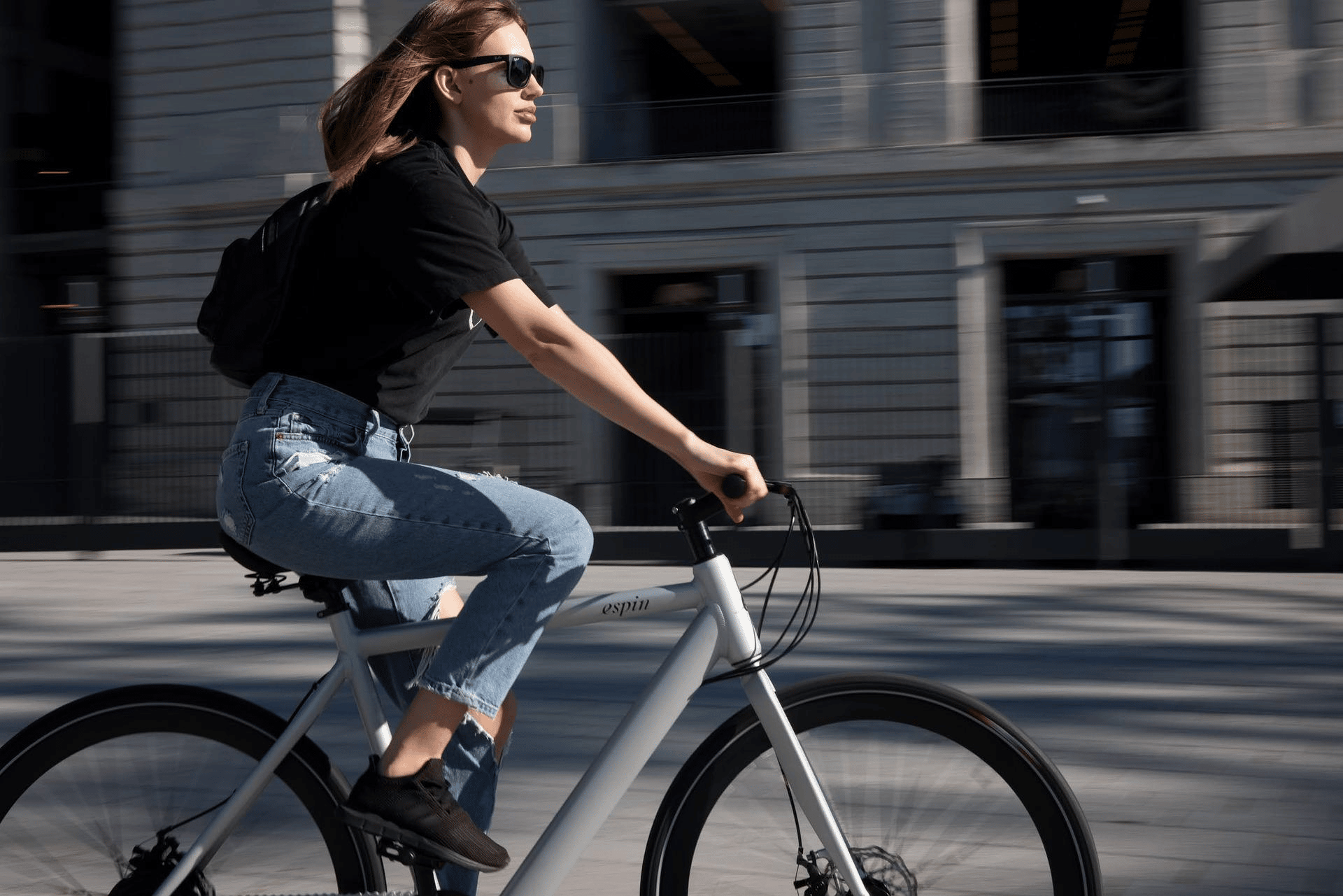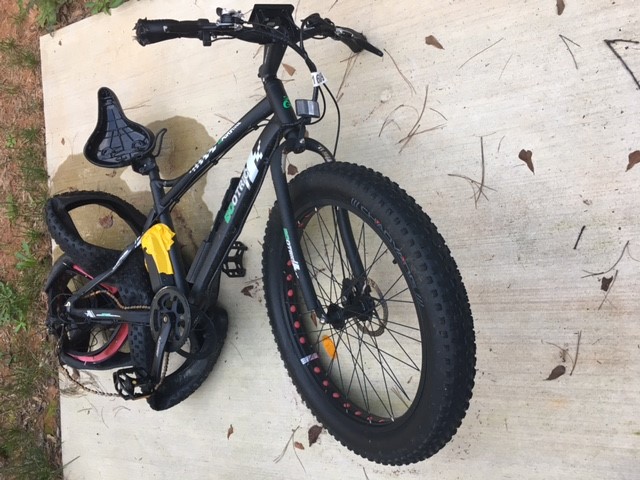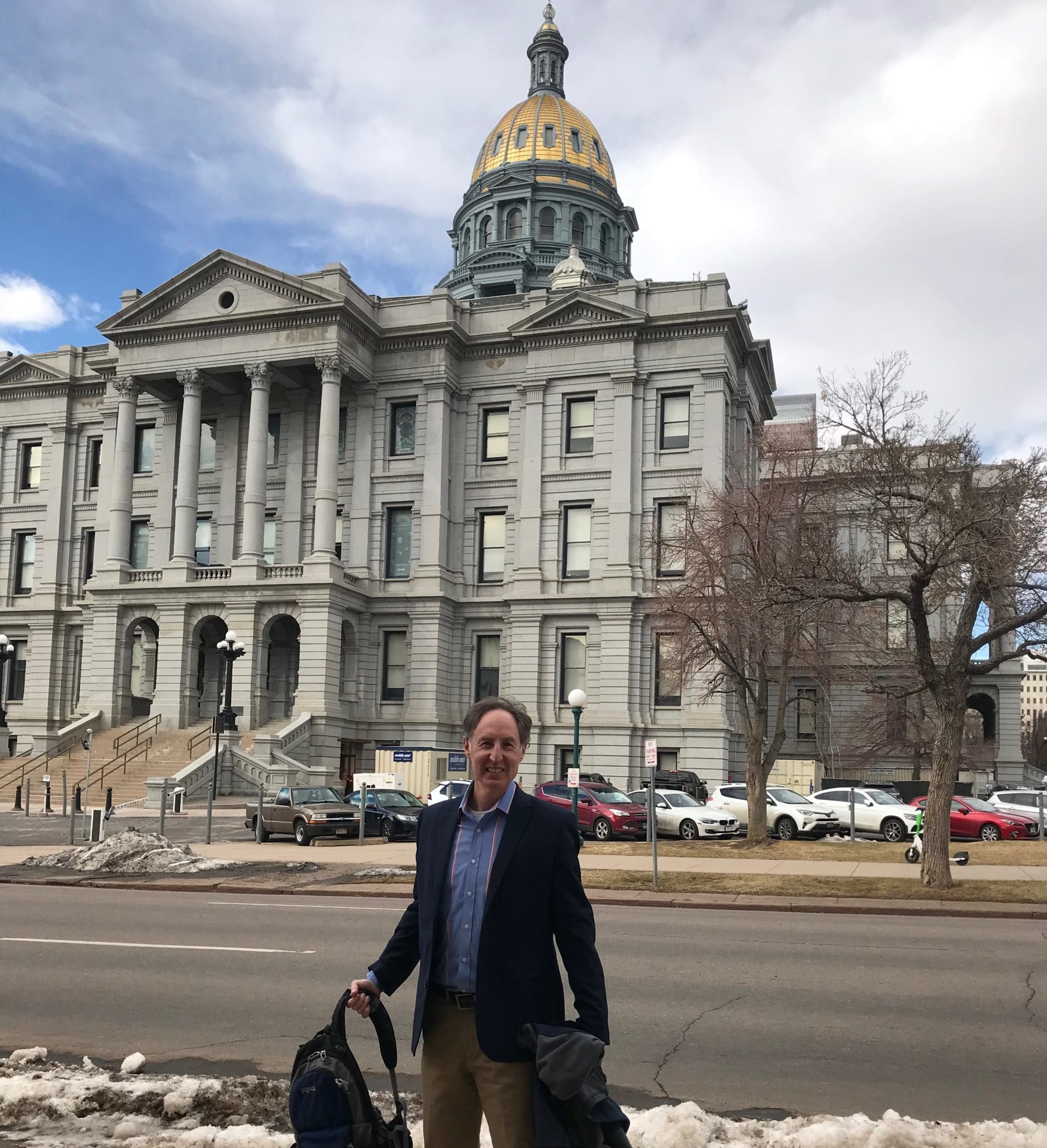A 7 Year Old Gets It.
I asked my 7 year old son, Will, to draw me a picture of each of these things: life with cars; life with electric cars; life with autonomous cars; they all looked the same. But the fourth picture- life in a modern, forward thinking, and environmentally, economically, and socially responsible place- looked very different. Even to a 7 year old.
The fourth picture is the life he wants.

In a country with a little over 17 million people and 23 million bikes, The Netherlands’ Provincial authorities, transport regions, and local councils are investing €245M in a national plan to encourage an additional 200,000 people to bike to work every day. The Dutch government said, “Goed! We zullen €100M meer toevoegen!” (or “Great! We’ll add €100M more!”). In Amsterdam alone, 72,000 people choose the bicycle as their primary mode of transportation, using it for its intended utilitarian purpose as “fietsers”, or everyday cyclists/commuters.
The Dutch government believes that 25,000 additional bike parking spaces and fast routes to prevent cycling commuters from being held up by traffic lights and at crossings are a worthwhile investment. They are priorities to the people, Dutch politicians, city planners, engineers, AND motorists, too. In fact, cars are guests on most roadways in the Netherlands; a foreign concept, indeed.
Often times, comparisons to Europe’s great cycling cities invite statements like, “They’ve always had it figured out.” Or, “That’s always been their way of life.” Or, “That would never work here; our city’s different.”
Most of those things are simply not true. Sure, our cities are different. All cities are different. Isn’t that the case everywhere in the world?
Rotterdam was completely destroyed during the World War II. It was later rebuilt around a design focused on automobiles which would be used to bring people living in the suburbs to work in the city every day.
In Utrecht, the government paved over the canals.
Amsterdam was ONE city council vote away from demolishing the Jewish quarter in lieu of a 4 lane motorway.
But the Dutch people quickly discovered this was NOT the life (or future) they wanted to live. The spaces built were inhospitable to pedestrians and bicyclists and any form of public transit. Cycling rates plummeted. Road fatalities increased.
So in the 1970’s the Dutch people demanded change. THE NINETEEN SEVENTIES, guys. Less than 40 years ago. The Dutch’s status as a cycling nation was NOT one they’ve always had. It’s one for which they fought, and it was a fight that did not come with ease. A committed and concerted effort was required, and even then, margins were certainly tight.
The list of things we could be doing here in the US to emulate the best practices of great cycling environments like the Netherlands (and Denmark, which is unsurprisingly the second most bike friendly country in the world) isn’t really that long. And if the Dutch pulled it together in a few short decades with an emphasis on continuing to promote a lifestyle that is already completely ingrained in their country’s culture, then what is it exactly that we’re waiting for?
Infrastructure: Let’s build places that treat people on bikes with dignity and respect:
- If the delta between a casual bike commuter’s speed and that of a motor vehicle is significant, how about some fully protected lanes and our own space to ride?
- Intersections shouldn’t be a “No Man’s Land.” Period. It’s almost criminal that (in the US) they are. Protection from left and right hooks in intersections shouldn’t be omitted, and moreso, should be prioritized as those are the places most people on bikes suffer from crashes with cars.
- Throw out the idea that signage and other passive safety measures (like randomly sprinkled bike lanes to nowhere) are acceptable replacements for effective inclusive infrastructure and cultural change. In Groningen, one of the most saturated bike cities in the Netherlands, ALL-WAY-NO-SIGN intersections are the rule, not the exception. Bikes turning in six different directions are able to successfully navigate these intersections by…making eye contact. Visual clues are all the Dutch need to travel efficiently and SAFELY by bike.
Education: Instead of parking our kids in front of the tv, or x-Box, or iPad, or iPhone, why not indoctrinate our children with an appreciation for the single fastest way to save the world? (Yeah, that’s rhetorical.)
- Dutch schools introduce kids to cycling in preschool. By the time they’re 5th graders, they’re in cycling skills courses. At 12, they’ve taken an exam to prove they know and UNDERSTAND the rules of the road. Fietsersbond (the Dutch’s national bike advocacy group) puts kids into simulated real life situations. They’re taught to safely and successfully navigate the streets, how to signal, where and when to turn and stop. Once they pass the exam, they are awarded with a certificate that acknowledges their ability to ride through the city on their own. Let that sink in for a minute…. In the Netherlands it’s common to see kids riding through the cities on bikes without an accompanying adult.
- If kids are reared with the skills and knowledge needed to travel around independently by bike, the scarcity of comprehensive American bike safety and skills courses becomes irrelevant. Problem not solved. Problem prevented.
Diversity/Multi-modal transportation: Bikes don’t replace cars. Cars don’t replace trains. But bikes and trains together have a symbiotic relationship that eventually makes cars redundant. 50% of all public transit trips in the Netherlands begin with a bike ride; talk about a circle of sustainable transportation!
- More people use public transit because the first and last mile of each trip is by bike. (Less space is needed to park thousands of bikes than is needed to park that many cars.)
- More people using public transit means more revenue for the cities.
- A greater variety of options means a lesser need for privately owned automobiles.
Remember the intended purpose of the bicycle: Sure, recreational riding is important, and fun, and really cool. But the bicycle is the best way to get from where we are to where we NEED to go. Why not begin making bikes more available and attainable by selling them in their safest, complete form?
- Dutch bikes seat you in an upright position. No, not especially aero, but if that’s your biggest concern then you’re missing the point here. By positioning riders as if they’re in a chair or on a stool, cyclists are forced to interact with people around them. They’re visible. Signaling is easier; stress is lower.
- Dutch bike shops sell bikes with kickstands, and fenders, and bells, and lights. People aren’t walking into bike shops to purchase just a frame or wheels. There’s no need to piece together your primary mode of transportation.
- Embracing these upright, everyday, commuter style bikes (walking with wheels) promotes health, accessibility, inclusivity, and a better, more appealing quality of life. Fitness levels, speed, power, blah, blah, blah; those things don’t matter. Everyone is welcome and everyone enjoys the ride.
- Focus less on what, and more on why and how: The Dutch ride their bikes until they fall apart. Sure, most recreational and sport cyclists also have whatever fancy road bike they’ve built which is used for competition and fitness. But everyday, millions of people are spending time with their most beloved possession and those bikes are meant to live out on the streets! They ride on all days and in all seasons. They proudly take a glorious beating and are the vehicle for a happy, healthy life.
So when my little boy, Will, drew the pictures for me, and the first 3 looked exactly the same (life with cars, life with electric cars, life with autonomous cars), I began to wonder how a pro-bike country like the Netherlands accommodates the pro-car population that will always exist in a modern world.
The Dutch love automobiles! Car culture is thriving there as much as it is in neighboring countries. They drive just as much. The difference is that an anti-bike platform is simply not tenable when the vast majority of people travel by bike every single day. Even conservative politicians who skew to the right see value in, and SUPPORT, more spending on cycling. Imagine that. What if riding a bicycle was never caught in the crosshairs of a polarized political environment? What if elected officials with all their differences could agree on one thing: that riding a bike is, indeed, the fastest way to save the world?
I am ready to start checking off the items on the list above. My kids deserve it. WE deserve it. The Distracted Driving, Drunk Driving, Too-Much-Driving epidemics are solvable with some steadfast commitment and a little- ok, a lot of- teamwork. We’re not destined for failure unless we’re unwilling to denounce it. We aren’t pigeonholed into living an unhappy, and unhealthy, and unsustainable life. But just like the Dutch, we’re only as good as we are today, and every day is a new opportunity to turn things around; to make things better.
There are more cyclists in the US than ever before. 66 million Americans on bikes could have a pretty commanding (and contagious) voice. So whatd’ya say? I mean, I really, really like that we’re all in this together…
…would love all of us to work together…
…to ride together…
…safe, happy, often, and PROUD.

Rachael Maney is the Director of the Bike Law Network and of the non-profit Bike Law Foundation.











